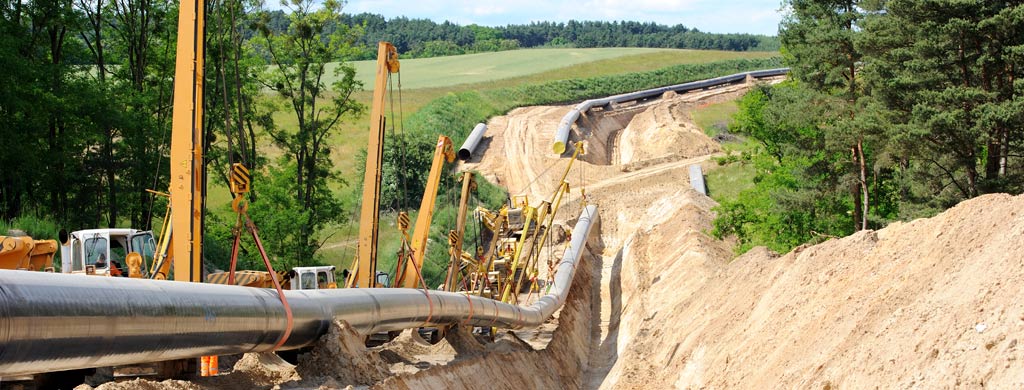Information events along potential route variants – Official start of the regional planning procedure scheduled for the late fall
Kassel. The new pipeline project EUGAL (European gas pipeline link) will strengthen the supply of energy to Germany and Europe. In just four years’ time, EUGAL is expected to be delivering natural gas flexibly and reliably within Germany, to Poland, but above all to Southeastern Europe. The around 485-kilometer natural gas pipeline will run from the Baltic Sea through Mecklenburg-Western Pomerania, Brandenburg and Saxony to the German-Czech border.
The project developer is the transmission system operator GASCADE. In a first step, the company has formulated a project framework for EUGAL together with municipalities and public-interest bodies. These approaches, the concrete planning and consultation steps and the project itself are to be presented to citizens along the potential route variants in the coming weeks. The first dates for information events have now been scheduled in Brandenburg (see the end for an overview of the dates). Those for Mecklenburg-Western Pomerania and Saxony will follow soon.
“As a potential new neighbor, it’s important for us to introduce ourselves in person and hear what is on local people’s minds. After all, a pipeline project like EUGAL is a shared task,” explains Ludger Hümbs, the EUGAL Chief Project Manager. “People, nature and safety in planning, construction and operation have top priority for us.”
Following the preliminary work that has done over the past months, the next project step will be in the late fall: the start of the official regional planning procedure. As part of that, a preferred route and possible alternatives will be examined. The impact of the routes on people, nature and the environment will be assessed. The public-interest bodies will have the opportunity to state their stance. In addition, the documents will be available to public in the affected communities and districts. The planning approval process will follow in mid-2017. The next step after approval is the start of construction of the pipeline, which is predominantly planned to have two strings. The first string will be built initially and is scheduled to be put into operation at the end of 2019. The second string will be completed one year later.
“With EUGAL, we’ll plug in some cases significant gaps in demand and transport capacities,” states Hümbs. Whereas natural gas requirements in Europe will still rise slightly up to 2035, domestic European production will fall sharply, according to the analysis in the 2015 European Network Development Plan. Europe faces a growing import gap of around 170 billion m³ of natural gas a year. The long-term need for transport capacities between Germany and its neighbors is also in some cases well above the currently available capacities. That is shown by the more capacity market survey (www.more-capacity.eu), which was instigated in order to ascertain requirements.
Information about the EUGAL project is available on the Internet site www.eugal.de.
Dates for the information events on the EUGAL project in Brandenburg
4 October 2016, 3pm to 8pm
Dorfgemeinschaftshaus, Schulstr. 7, 15926 Heideblick, Bornsdorf district, Germany
5 October 2016, 3pm to 8pm
Bürgerzentrum, Elsholzstr. 6, 15345 Rehfelde, Germany
6 October 2016, 3pm to 8pm
Sporthalle Oderberg, Am Friedenshain 19, 16248 Oderberg, Germany
13 October 2016, 3pm to 8pm
Bürgertreff, Hauptstr. 32, 15910 Rietzneuendorf-Staakow, Germany
14 October 2016, 3pm to 8pm
Bindow-Treff “Alte Schule”, Rudolf-Breitscheid-Str. 13, 15754 Heidesee, Bindow district, Germany
Registration is not necessary.

